ASEAN

Anti-junta Groups Ask ASEAN and International Communities to Address Myanmar’s Crisis
Ahead of the 44th and 45th ASEAN Summits, Indonesia hosted a special meeting in Jakarta to address the Myanmar crisis, attended by representatives from the UN, EU, ASEAN, and various Myanmar stakeholders, including the National Unity Government (NUG) and Shan representatives. Notably absent were representatives from the Myanmar military-led State Administration Council (SAC). The meeting underscored the importance of the five-point agreement, particularly the immediate cessation of violence, as armed conflict persists in 71% of Myanmar's townships. Anti-junta groups attributed the ongoing violence to international support for the military, urging ASEAN and global communities to halt arms supplies, impose sanctions, provide humanitarian aid, and support inclusive dialogue. They called for ASEAN's assistance in organizing dialogue sessions and drafting interim governance frameworks, emphasizing their unwillingness to negotiate with the junta but expressing readiness to discuss for the nation's sake. This gathering aimed to foster collaboration among anti-military factions to find solutions to the crisis.
Conflict
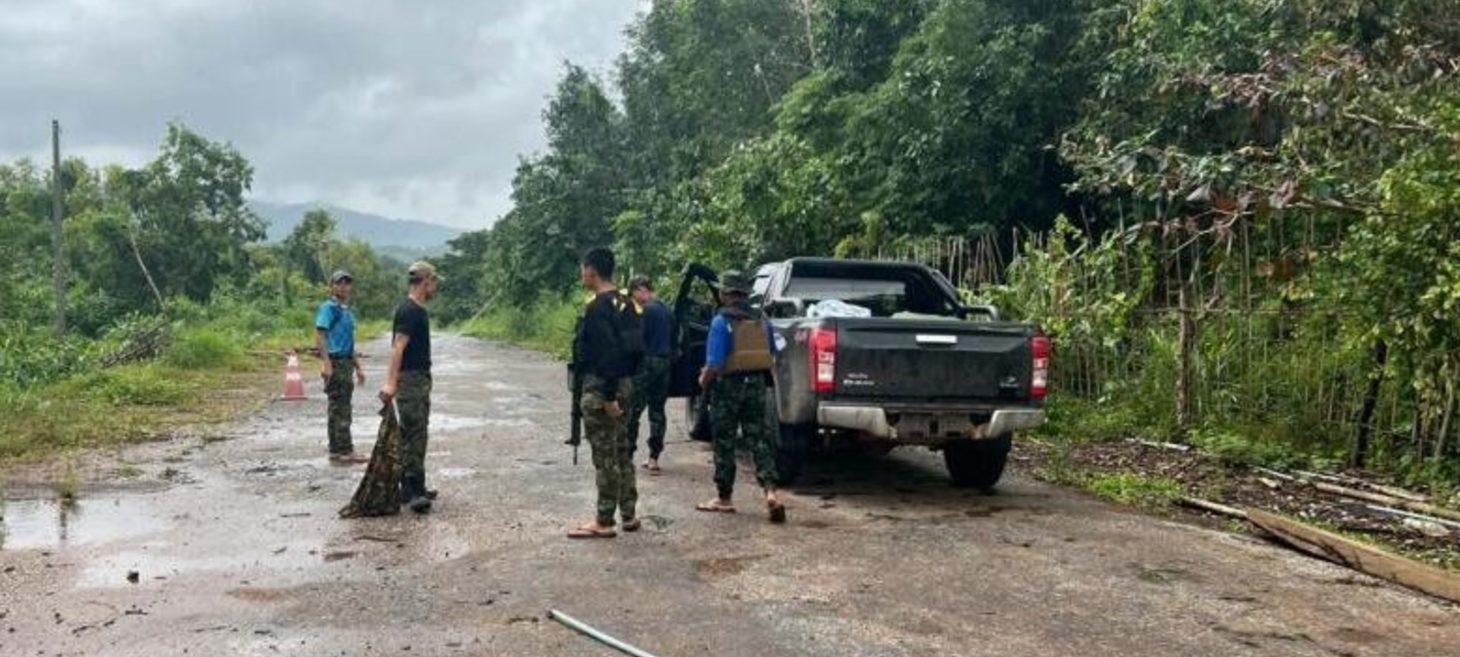
Junta Defends Base with Airstrikes in Kyainseikgyi Township, Karen State
In Kyainseikgyi Township, Kayin (Karen) State, the junta has been conducting airstrikes on Ahnankwin Village and surrounding areas since October 13, 2024, in response to intensified attacks by the Karen National Liberation Army (KNLA) and allied people's defense forces. These airstrikes have caused significant damage to local homes and properties. The conflict began in August 2024 when the KNLA launched an offensive against a junta military base. The junta's response has included airstrikes and artillery fire, while the KNLA has employed drone attacks. Despite ongoing hostilities, no casualties have been reported from the airstrikes, although there have been casualties on both sides due to other forms of combat. Reports indicate that junta soldiers are fleeing the base due to shortages of food and water, with over 10 captured by the Karen forces. The conflict has displaced approximately 3,000 villagers and disrupted traffic on major roads in the area. The Karen Information Center has not yet verified reports of captured soldiers.
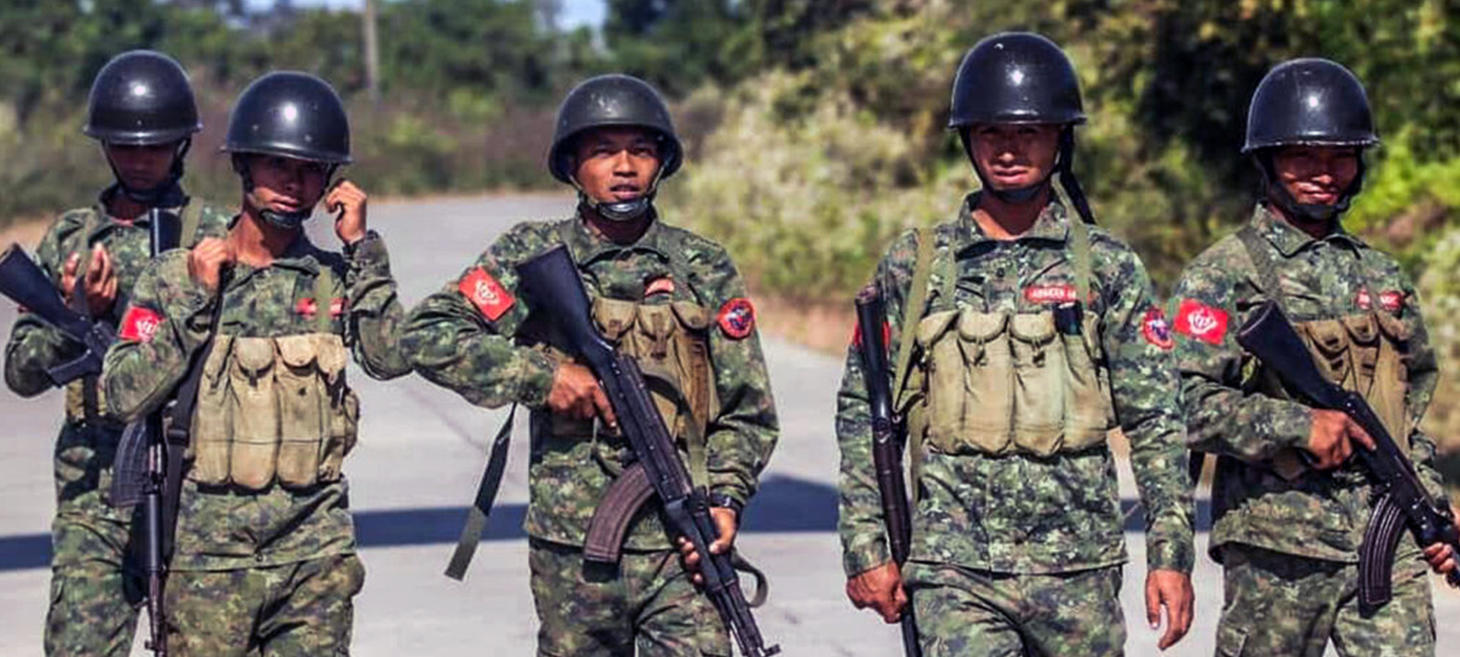
Clashes Intensify in Rakhine’s Ann as AA Tightens Noose on Myanmar Military’s Western Command
Clashes have intensified in Rakhine State's Ann Township as the Arakan Army (AA) increases pressure on Myanmar's military Western Command. The AA has been strategically targeting military positions, aiming to cut off supply routes and weaken the junta's hold in the region. This escalation is part of a broader conflict in Rakhine State, where the AA has been actively resisting the military regime. The ongoing violence has led to significant disruptions, with reports of civilian casualties and displacement. The situation highlights the persistent instability in Myanmar, exacerbated by ethnic tensions and the military's efforts to maintain control over contested areas. The conflict in Rakhine is part of a larger pattern of resistance against the junta, which has faced widespread opposition since the 2021 coup.
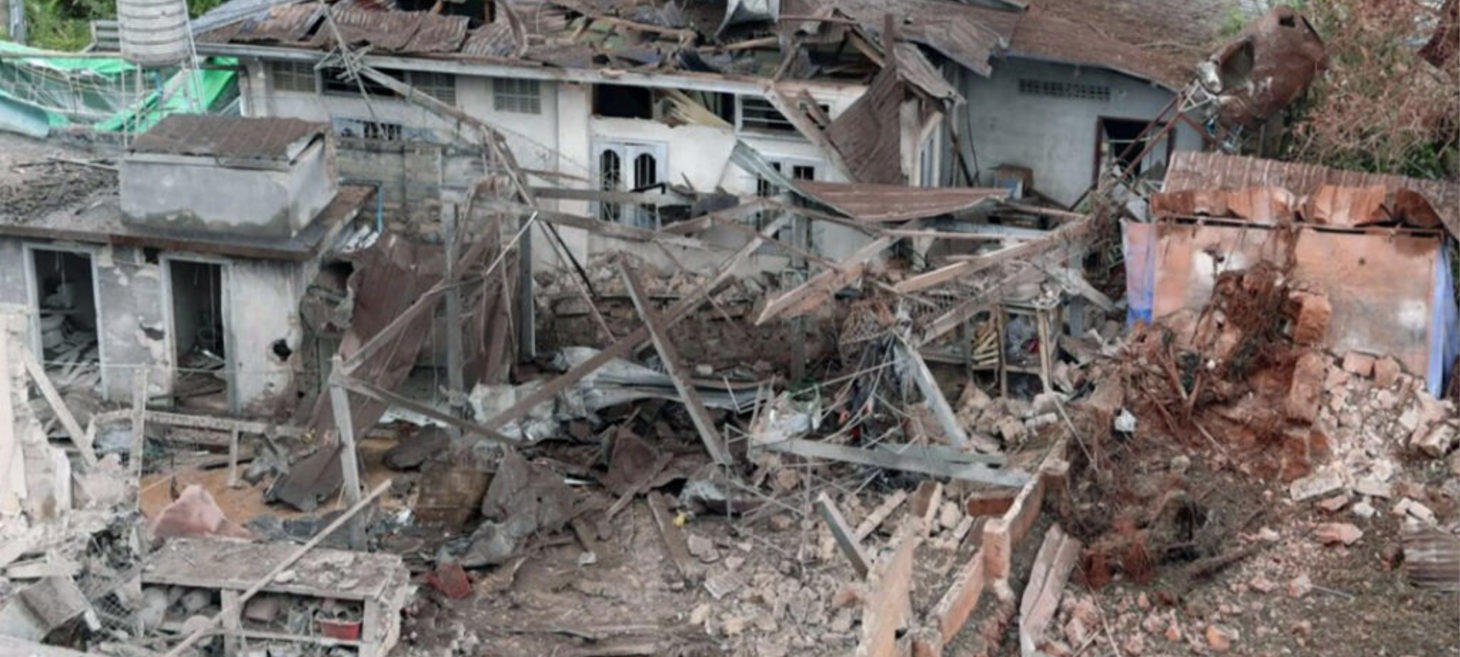
Myanmar Junta Airstrikes Target Lashio Amid Chinese Pressure
The Myanmar military junta has conducted airstrikes on Lashio in northern Shan State, targeting areas controlled by the Myanmar National Democratic Alliance Army (MNDAA). This escalation comes amid increasing pressure from China, which has expressed concerns over the conflict's impact on border stability and its own security interests. The airstrikes are part of the junta's broader military campaign against ethnic armed groups in the region, which has intensified following recent clashes. China's involvement underscores its strategic interest in maintaining stability along its border with Myanmar, as well as its influence over the junta. The situation highlights the complex dynamics of Myanmar's internal conflicts, where regional powers like China play a significant role in shaping the outcomes. The ongoing violence has led to civilian casualties and displacement, exacerbating the humanitarian crisis in the area.
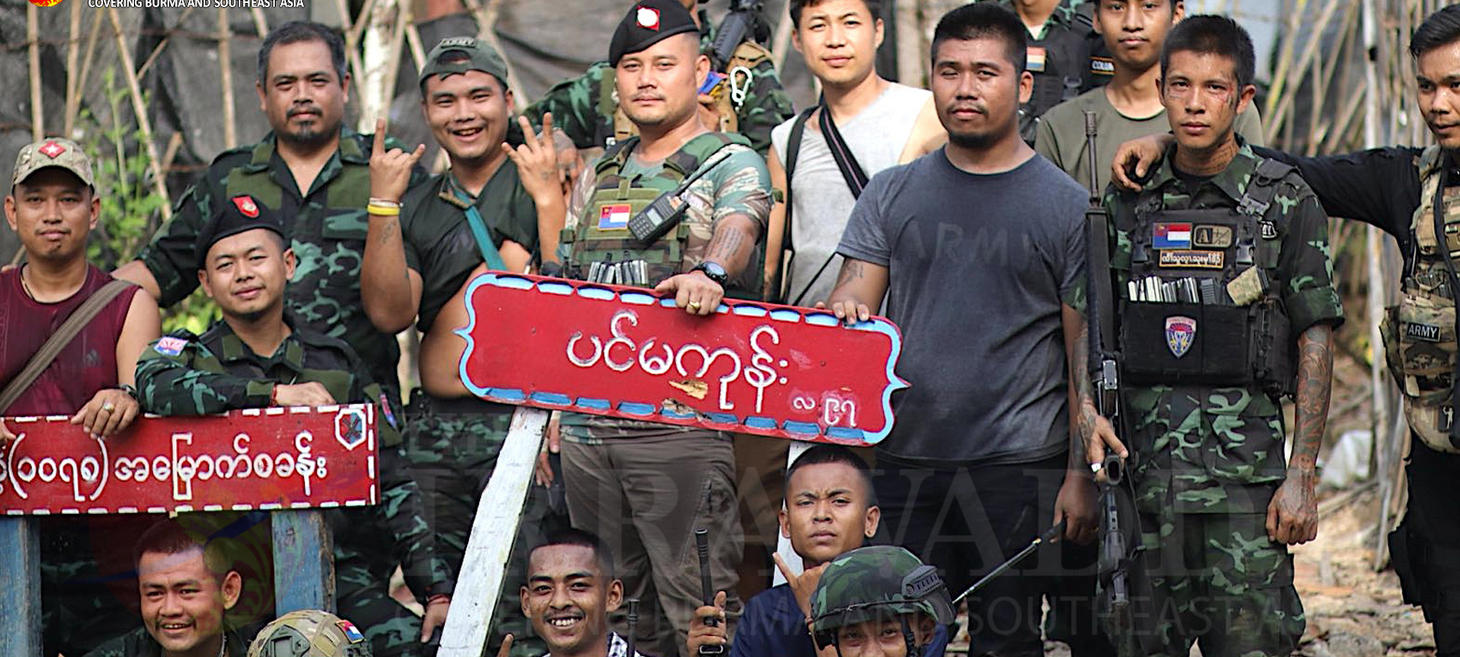
A Closer Look at The Battle For Control of Myanmar’s Border With Thailand
The battle for control of Myanmar's border with Thailand has intensified as ethnic armed groups and anti-junta forces, including the Karen National Union (KNU) and People's Defense Forces (PDFs), increase their attacks on military positions. This strategic region is crucial for both the Myanmar military and resistance groups due to its economic significance and as a conduit for arms and supplies. The junta has responded with airstrikes and heavy artillery, aiming to maintain control over key border towns and trade routes. The conflict has led to significant displacement of civilians and disrupted cross-border trade, impacting local economies on both sides of the border. The situation reflects the broader struggle for power in Myanmar, where ethnic groups and pro-democracy forces continue to resist military rule, and highlights the geopolitical implications for neighboring Thailand, which faces challenges in managing the influx of refugees and maintaining border security.
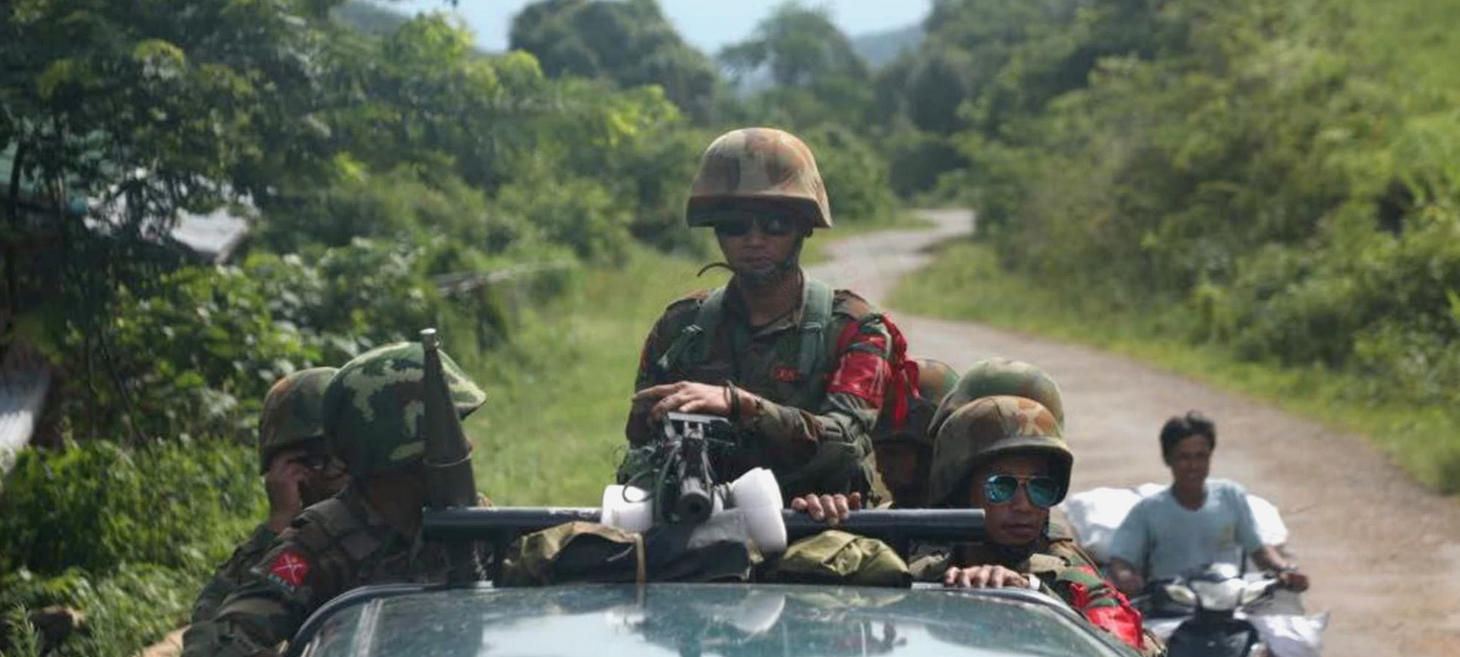
Displaced Civilians Turned Away From Mandalay Garrison Town
Displaced civilians fleeing conflict in Myanmar have been turned away from entering Mandalay, a garrison town, as the military junta tightens security measures. This move comes amid escalating violence in the region, with the junta aiming to prevent potential infiltration by resistance forces. The displaced individuals, many of whom are seeking refuge from ongoing clashes between the military and ethnic armed groups, face dire conditions as they are forced to find shelter elsewhere. The situation highlights the humanitarian crisis unfolding in Myanmar, where civilians are caught in the crossfire of the military's efforts to maintain control and the resistance's push for autonomy. The junta's actions reflect its broader strategy of securing key urban areas while limiting the movement of displaced populations, exacerbating the challenges faced by those affected by the conflict.

Arakan Army claims Rohingya militias fighting alongside military near Bangladesh-Myanmar border
The Arakan Army (AA) has accused three Rohingya militias—the Arakan Rohingya Salvation Army (ARSA), Rohingya Solidarity Organisation (RSO), and Arakan Rohingya Army (ARA)—of collaborating with Myanmar's military forces against the AA in Maungdaw Township, near the Bangladesh-Myanmar border. According to the AA, these militias have established bases in remote areas and are launching attacks on AA forces, contributing to regional instability and public safety concerns. The AA claims these groups initially formed as criminal networks within Rohingya refugee camps in Bangladesh. This development highlights the complex dynamics in Rakhine State, where various armed groups are involved in the ongoing conflict, further complicating the region's security landscape.
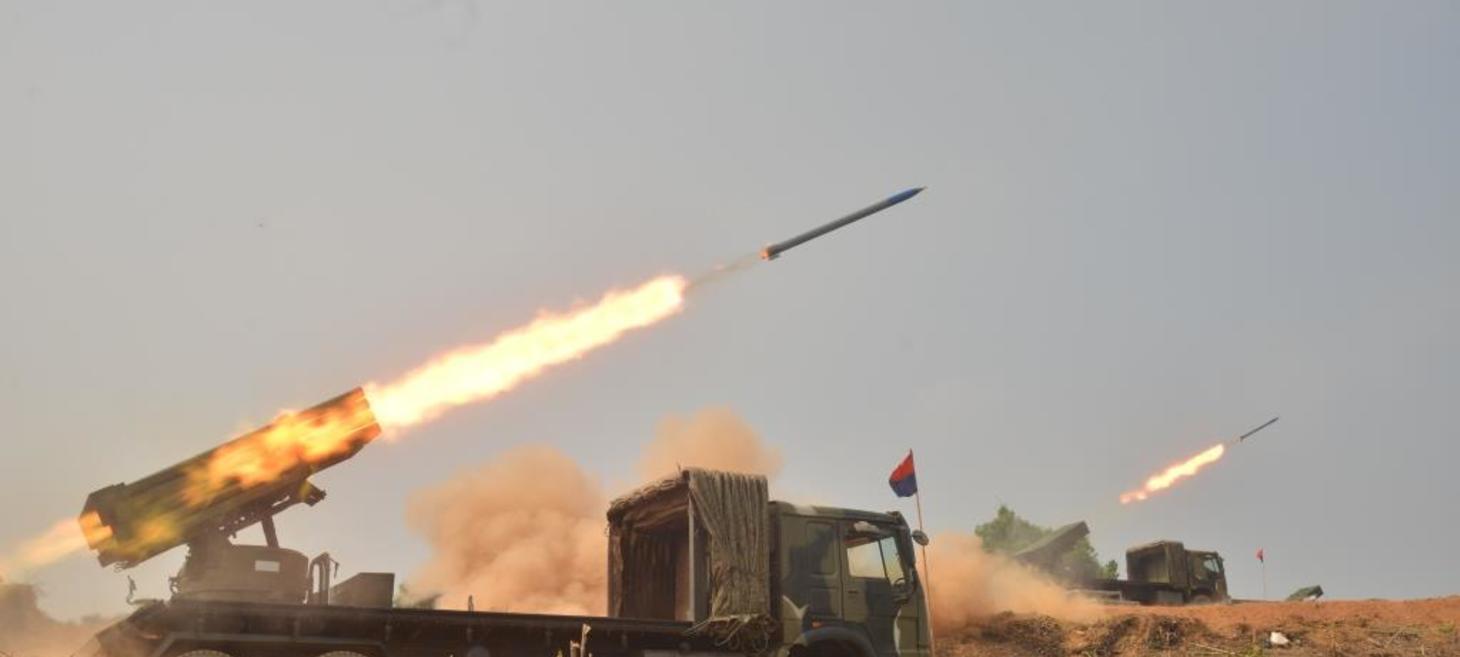
Myanmar regime retakes key town southwest of Mandalay
Myanmar's military has successfully recaptured the town of Ngan Myar Gyi in Ngazun Township, Mandalay Region, after a two-week offensive involving ground, air, and naval forces. The town had been under the control of anti-junta groups since August 19, 2024. The military's campaign, which began on October 8, included daily airstrikes and advancing ground troops supported by naval operations. This strategic victory for the junta highlights the ongoing conflict between military forces and resistance groups in Myanmar, as the regime continues to assert control over key areas. The recapture of Ngan Myar Gyi underscores the intense and multifaceted nature of the military's efforts to suppress opposition and maintain territorial dominance.
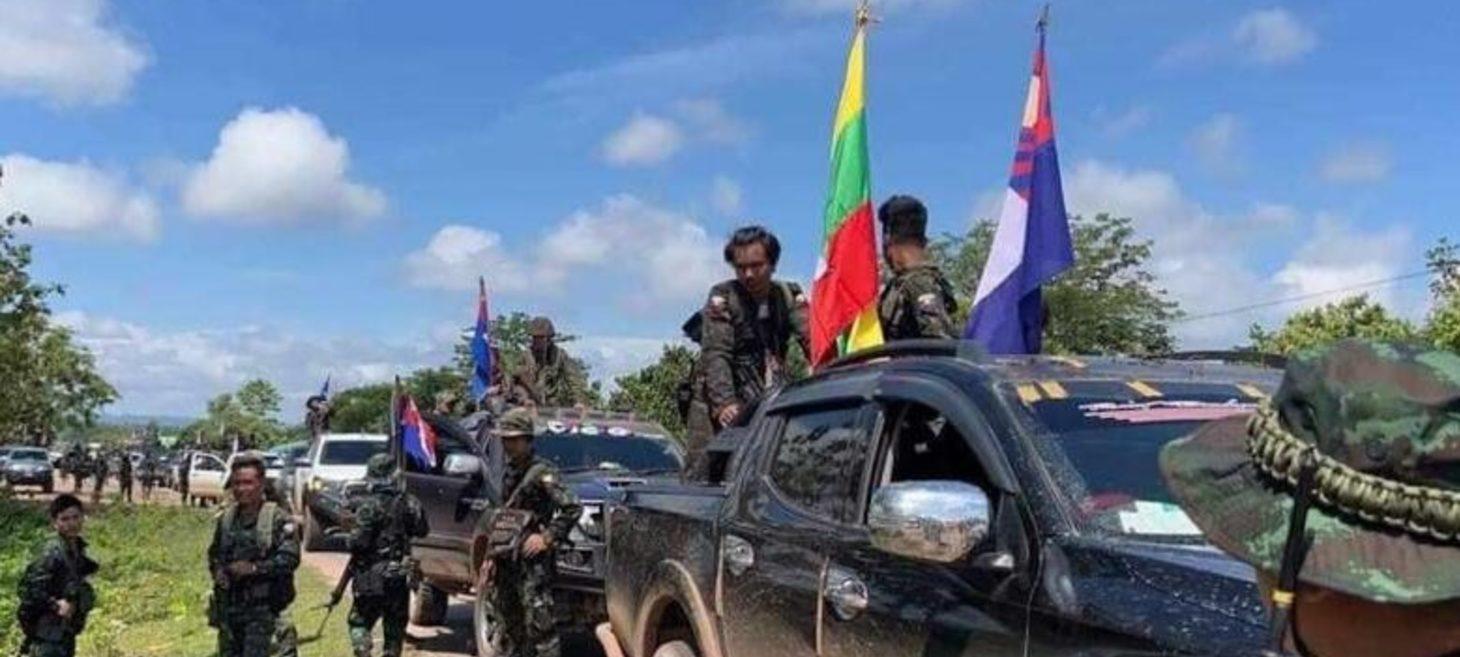
Junta raises security on Hpa An to Hlaingbwe Road in Karen State
On October 22, 2024, Myanmar's military junta heightened security along the Hpa An to Hlaingbwe road in Hpa-An Township following a drone attack on the Karen National Liberation Army (KNLA) headquarters in the Karen National Union's Brigade 7 area. The attack, involving four kamikaze drones, injured one KNLA member and damaged a building. Subsequent drone strikes targeted KNLA security checkpoints in Hlaingbwe Township. In response, the junta established joint checkpoints with police and Border Guard Forces along the road, conducting thorough security checks and interrogations. This increased military presence has led to tighter security measures, with numerous checkpoints and ambush patrols stopping vehicles and searching personal belongings. The heightened tensions have prompted many local residents to flee to Thailand to avoid potential conflict escalation.

Myanmar junta restricts travel to northern Shan State as fresh clashes erupt near Mandalay Region border
The Myanmar military junta has restricted travel routes into northern Shan State from the Mandalay Region due to renewed clashes with the Ta’ang National Liberation Army (TNLA) and other resistance forces near the regional border. Fighting has intensified in villages between Nawnghkio in northern Shan State and Pyin Oo Lwin in Mandalay Region, with the TNLA capturing and maintaining control over several towns, including Nawnghkio. The TNLA, an ethnic armed group, has been part of coordinated offensives against the military since last year. The junta's ground offensive has recently expanded beyond Nawnghkio Township, escalating the conflict in the area. This development highlights the ongoing struggle for control in Myanmar's northern regions, where ethnic armed groups continue to challenge the military's authority.
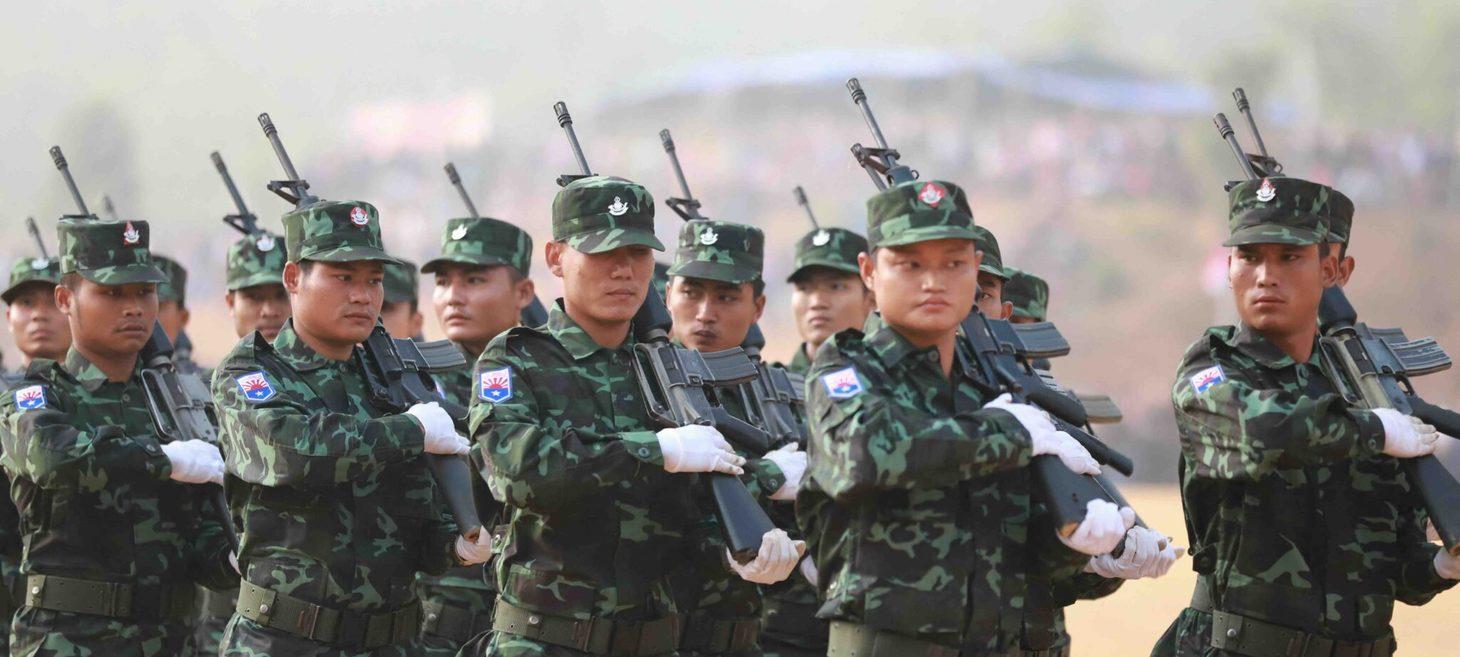
Myanmar junta launches first drone attack on Karen National Union headquarters
he Myanmar military conducted its first drone attack on the headquarters of the Karen National Union (KNU) in Hpa-An District, Karen State, on a Tuesday morning. The strike, which occurred between 11 am and noon, targeted the KNU's Brigade 7 headquarters during a routine meeting of the organization's leaders. The attack involved four bombs and prompted the attendees to immediately end their meeting and evacuate to safety. This unprecedented drone strike marks a significant escalation in the military's tactics against the KNU, which has been a key player in the resistance against the junta since the February 2021 coup. The targeted office also serves as a base for the KNU's armed wings, the Karen National Liberation Army (KNLA) and the Karen National Defense Organization, highlighting the strategic importance of the location.
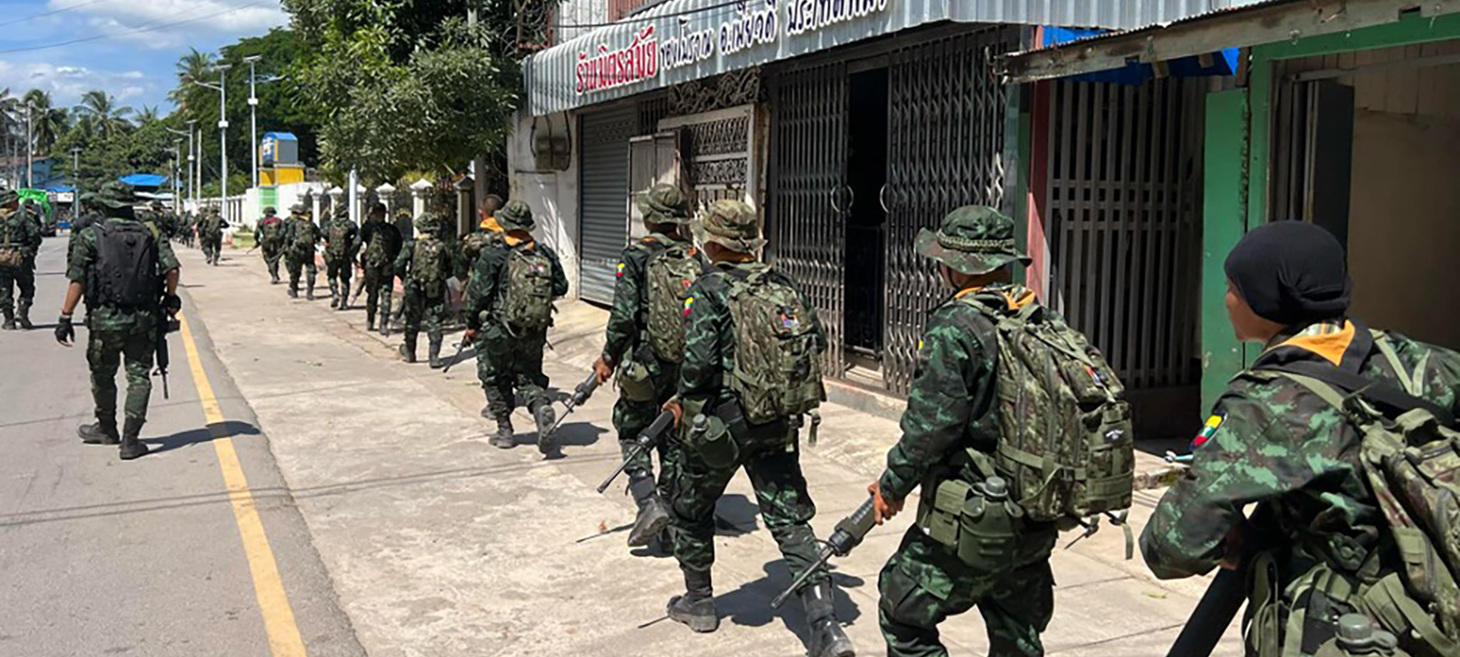
Myanmar Junta Braces for Resistance Attack on Myawaddy
The Myanmar military junta is preparing for a potential attack by resistance forces on Myawaddy, a key town in Karen State near the Thai border. This anticipation follows increased military activity and the movement of resistance groups in the area, including the Karen National Liberation Army (KNLA) and allied People's Defense Forces (PDFs). Myawaddy holds strategic importance due to its location and role as a major trade hub. The junta has reportedly reinforced its positions and heightened security measures in response to the threat. This development is part of the broader conflict between the military regime and resistance groups, which have been intensifying their efforts to challenge the junta's control since the 2021 coup. The situation underscores the ongoing instability and the complex dynamics of the conflict in Myanmar's border regions.
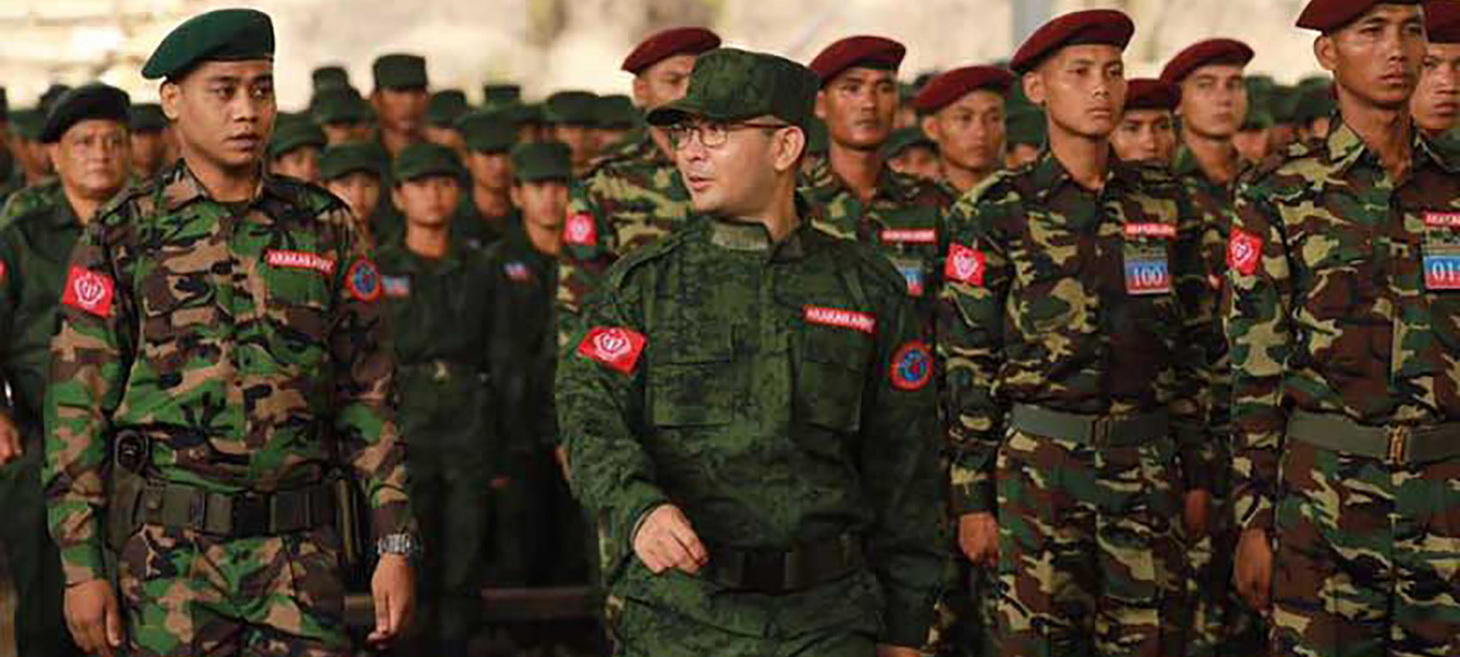
Myanmar Junta’s Western Command Buckling as Troops Mull Surrender: Sources
The Myanmar junta's Western Command is facing significant challenges and potential collapse. The command, which oversees Chin State and parts of Magwe and Sagaing regions, has been under intense pressure from ethnic armed organizations and People's Defense Force groups. Sources indicate that many junta troops, including high-ranking officers, are considering surrender due to food shortages, low morale, and continuous attacks. The situation has been exacerbated by recent losses of key outposts and the capture of weapons by resistance forces. The junta's attempts to reinforce the area have been hampered by ambushes and the destruction of supply routes. This deteriorating situation in the Western Command reflects the broader challenges faced by the Myanmar military regime across the country, as it struggles to maintain control in the face of widespread armed resistance.
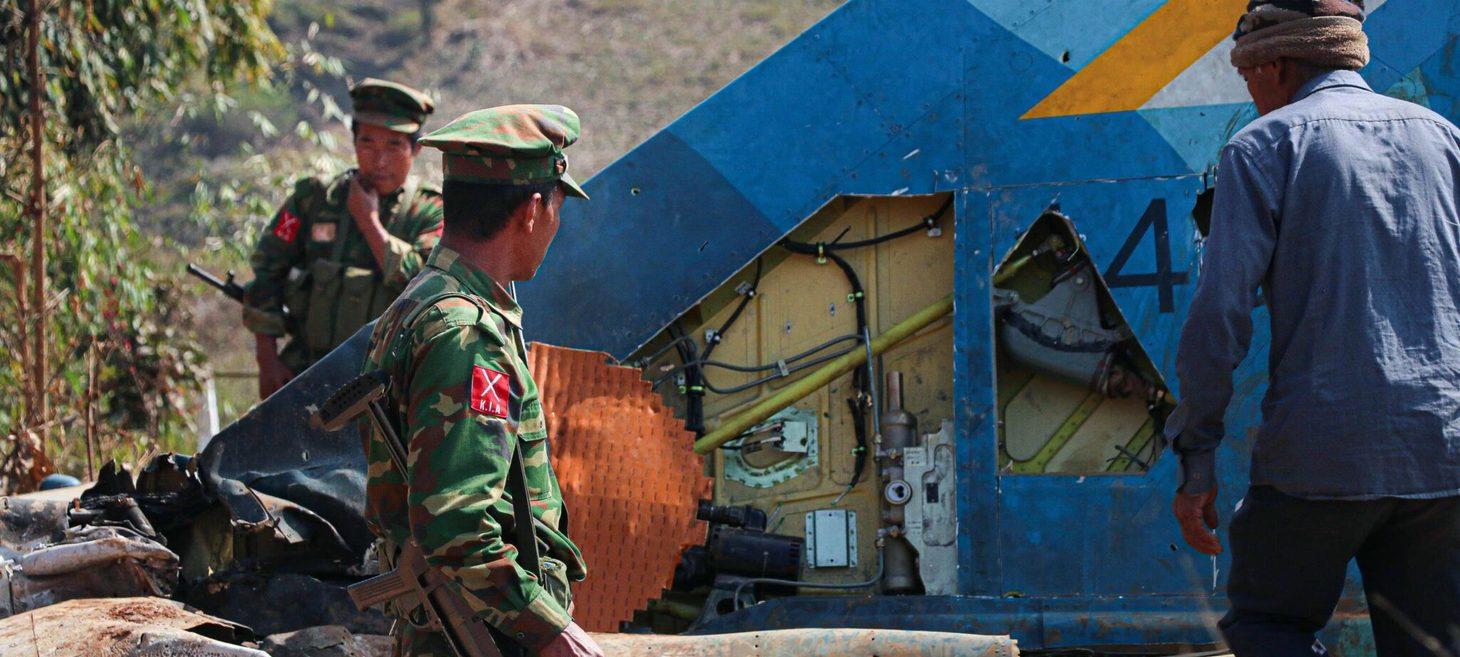
Myanmar’s military launches all-out bid to retake Kachin State town of Momauk
Myanmar's military has launched an intensified campaign to retake the town of Momauk in southern Kachin State, which has been under the control of the Kachin Independence Army (KIA) and its allies for over two months. The military is deploying a combined force, including airstrikes, ground troops, and artillery, from the nearby town of Bhamo. Momauk, a strategic location near the Chinese border, was captured by the KIA on August 19 after they seized a key military base. Despite repeated attempts, the junta has struggled to reclaim the town due to the KIA's control of the surrounding area. The conflict has led to significant civilian displacement, with many residents fleeing Bhamo amid fears of escalating violence. Communication in Kachin State has been severely restricted since July, further complicating the situation. The KIA's offensive, which began in March, has resulted in the capture of numerous junta camps and towns across Kachin and northern Shan State.
Crime & Narcotics
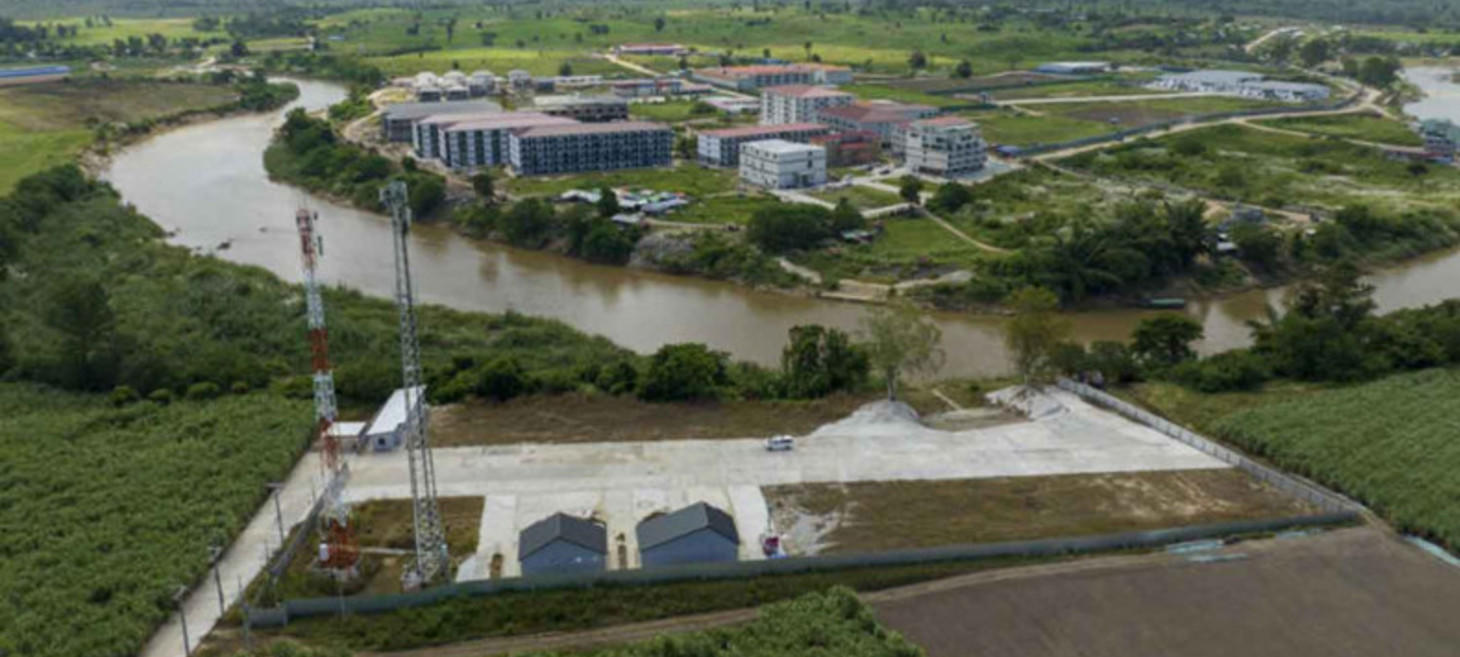
ATPD targets 110 victims in Myanmar for rescue - Bangkok Post
The Anti-Trafficking in Persons Division (ATPD) of the Thai police is intensifying efforts to rescue approximately 110 trafficking victims in Myanmar. This initiative follows open letters from the Civil Society Network for Victim Assistance in Human Trafficking, urging action from Prime Minister Paetongtarn Shinawatra and relevant agencies. The victims, from nine different countries, were reportedly lured by a Chinese mafia syndicate and forced to work as scammers in Myanmar. The ATPD plans to collaborate with the Foreign Affairs Ministry, the Thai embassy in Myanmar, and the Township Border Committee to facilitate the rescue. Among those held are 36 Filipinos and one Moroccan in areas controlled by the Karen Border Guard Force (BGF), and 73 individuals in territories under the Democratic Karen Buddhist Army (DKBA). The victims were deceived through social media with promises of high-paying jobs in Thailand and were illegally transported across the border via Tak's Mae Sot district. The network emphasizes the importance of this rescue operation, especially following Thailand's election to the United Nations Human Rights Council for 2025-2027.
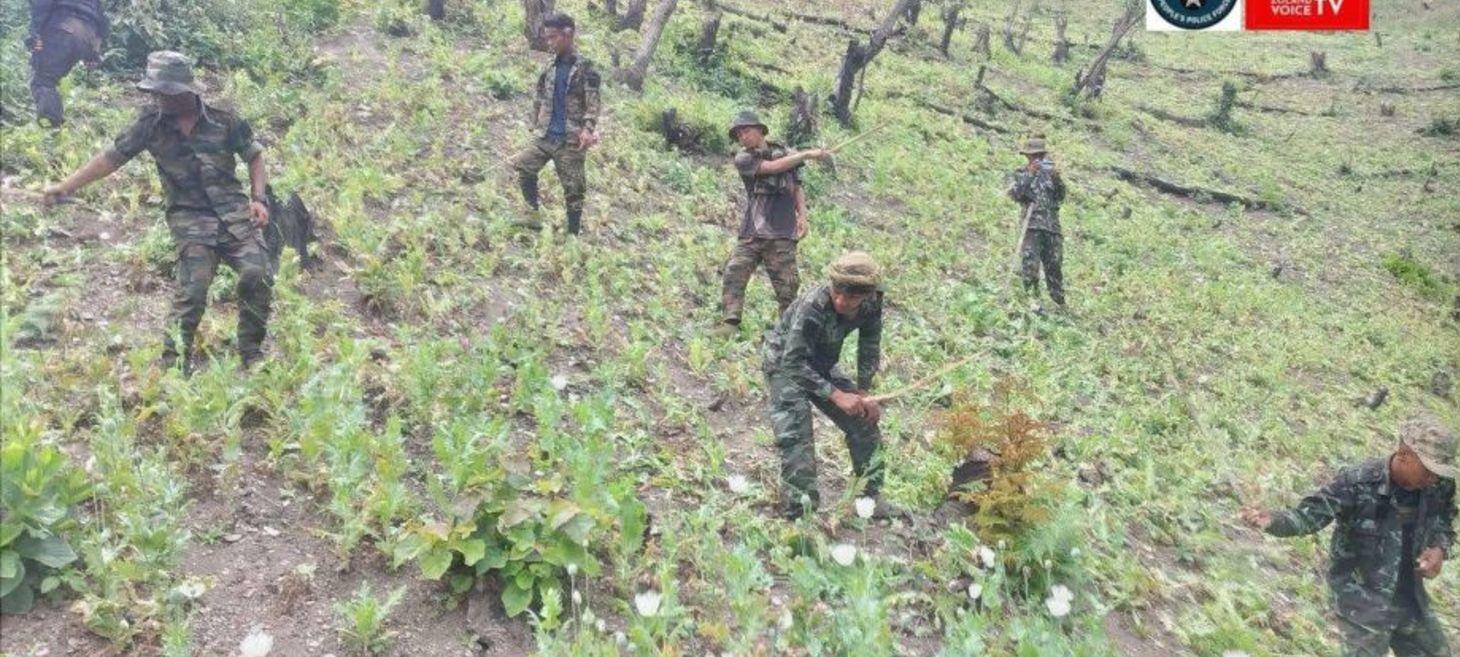
Defence Forces Destroy 20 Acres of Poppy in Tedim Township, Chin State
In Chin State's Tedim Township, local defense forces have destroyed 20 acres of poppy fields as part of their anti-drug efforts. This operation was carried out by the Chinland Defence Force (CDF) and the Zomi Revolutionary Army (ZRA), who are actively working to eradicate poppy cultivation in the region. The destruction of these fields is part of a broader initiative to combat drug production and trafficking, which are significant issues in Myanmar. The defense forces aim to reduce the influence of drug-related activities that fund armed groups and contribute to regional instability. This action reflects the ongoing efforts by local groups to address the drug problem while also challenging the military junta's control in the area.
Economy
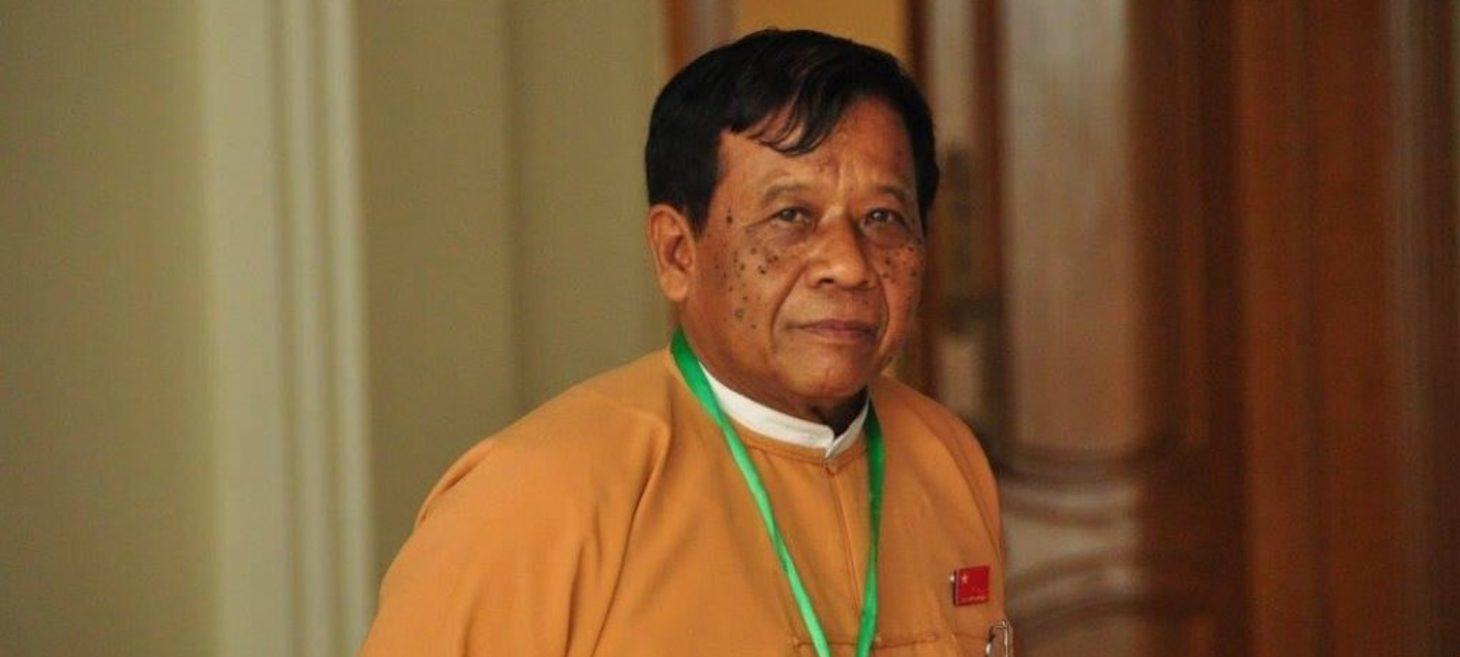
One year since the launch of Operation 1027; Myanmar Kyat plummets after China border closures
One year after the launch of Operation 1027 by the Brotherhood Alliance, Myanmar's economy is facing significant challenges, particularly with the plummeting value of the kyat following the closure of border crossings with China. These closures have disrupted trade, exacerbating the economic instability caused by ongoing conflicts and political turmoil since the military coup in 2021. The Brotherhood Alliance, consisting of ethnic armed groups, initiated Operation 1027 to intensify military pressure on the junta, further straining the country's resources. The economic downturn is marked by rising inflation and shortages of essential goods, impacting the daily lives of Myanmar's citizens. The situation underscores the broader regional implications of Myanmar's internal conflicts and the critical role of cross-border trade in stabilizing the nation's economy.

CBM to sell 5M yuan, 25M Thai baht on 28 Oct
The Central Bank of Myanmar (CBM) announced plans to sell 5 million Chinese yuan and 25 million Thai baht on October 28, 2024, as part of its efforts to stabilize the local currency market. This move is aimed at addressing the volatility of the Myanmar kyat, which has been under pressure due to economic instability and external factors. By injecting foreign currency into the market, the CBM seeks to manage exchange rates and support importers who rely on these currencies for trade. This intervention is part of a broader strategy to maintain economic stability amid ongoing challenges, including inflation and disruptions in trade. The sale of foreign currency is a common tool used by central banks to influence currency value and ensure liquidity in the financial system.
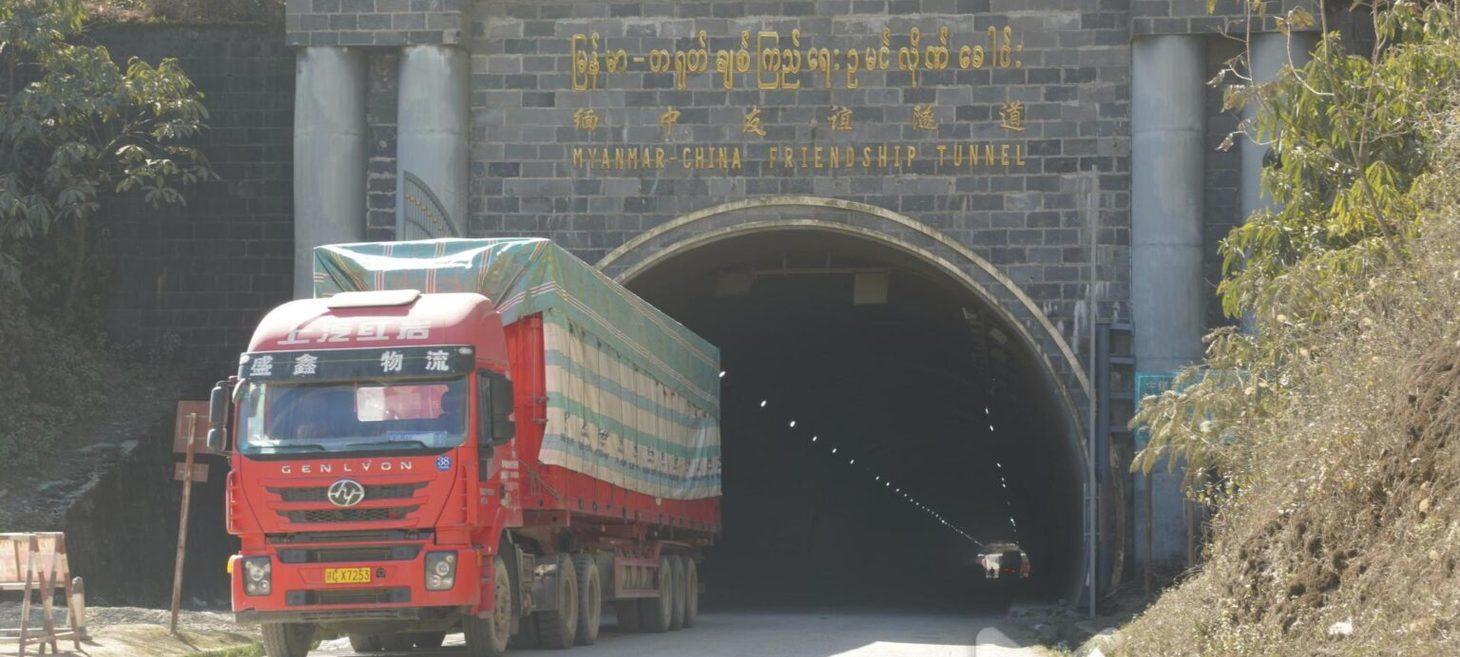
China blocks all goods entering Myanmar through Muse and Mongla gates
China has halted all goods entering Myanmar through the Muse and Mongla border gates, effectively ending the remaining border trade between the two countries. This move is part of China's strategy to pressure ethnic armed groups along the border to cease their offensive against Myanmar's military junta. The closure has brought trade along the 1,300-mile border to a standstill, impacting the flow of goods and economic activities in the region. While Muse remains under the control of the Myanmar regime, Mongla is controlled by the National Democratic Alliance Army, which is allied with members of the Brotherhood Alliance but not participating in the ongoing Operation 1027 offensive. This development underscores the complex geopolitical dynamics at play, as China seeks to influence the conflict's outcome while maintaining stability along its border with Myanmar.
Ethnic Issues
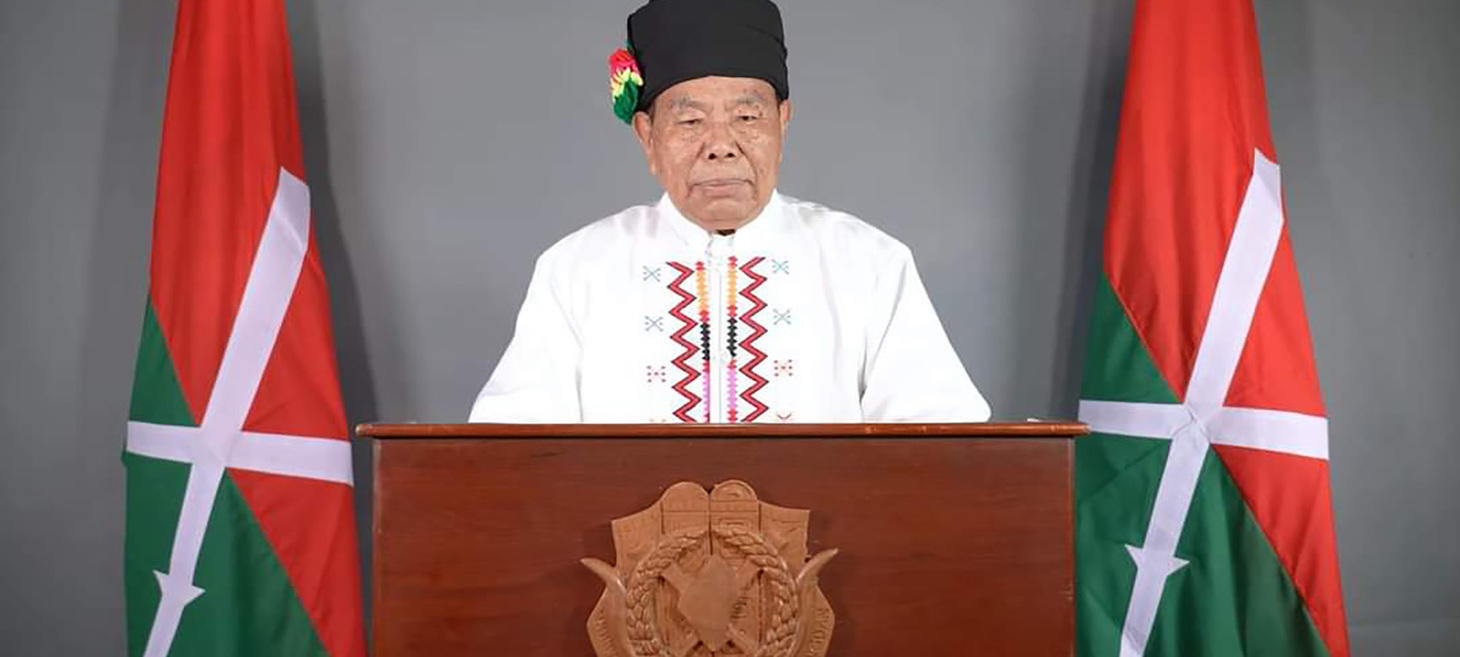
KIO Chair Calls on All Able Adults to Join Revolution
The chair of the Kachin Independence Organization (KIO), N'Ban La, has called on all able-bodied adults to join the revolution against Myanmar's military junta. This appeal was made during the 63rd anniversary of the Kachin Revolution Day, emphasizing the need for collective action to overthrow the military regime and establish a federal democratic union. The KIO, a significant force in the resistance against the junta, is urging increased participation from the Kachin community and other ethnic groups to strengthen the revolution. This call to arms highlights the ongoing struggle for autonomy and democracy in Myanmar, as ethnic armed organizations continue to play a crucial role in opposing military rule. The KIO's stance reflects the broader sentiment among resistance groups seeking to unite various factions in the fight for political change and self-determination.
Foreign Affairs
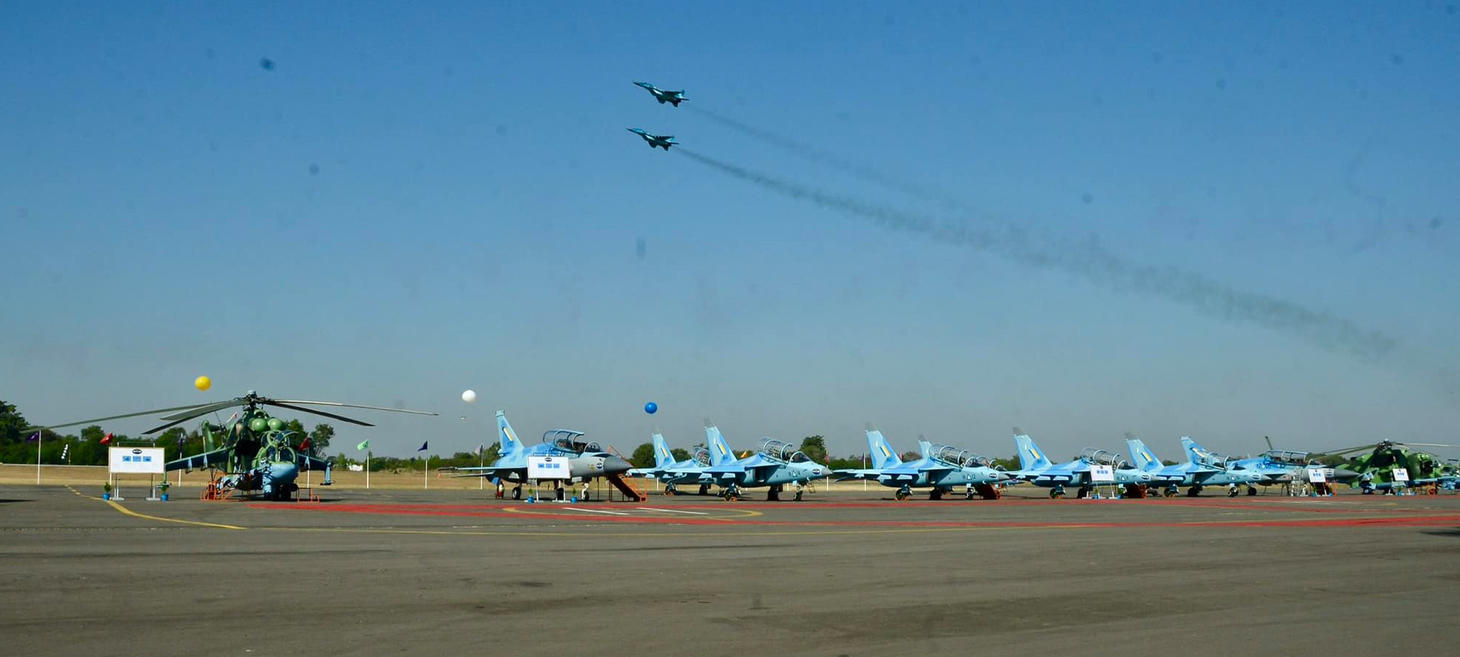
China Fires Warning Shots at Myanmar Junta Bomber
China fired warning shots at a Myanmar Air Force bomber that entered Chinese airspace near the border town of Lashio in northern Shan State. The incident occurred on October 28, 2024, during a period of heightened tensions along the Myanmar-China border. The bomber, believed to be a MiG-29 fighter jet, crossed into Yunnan Province before being intercepted by Chinese air defenses. While details remain limited, sources suggest the aircraft may have been on a mission related to ongoing conflicts in northern Shan State. This event marks a rare instance of direct confrontation between Chinese and Myanmar military forces, highlighting the complex geopolitical dynamics in the region. The incident could potentially strain relations between the two nations, especially considering China's role as a key economic partner and diplomatic supporter of Myanmar's military regime.
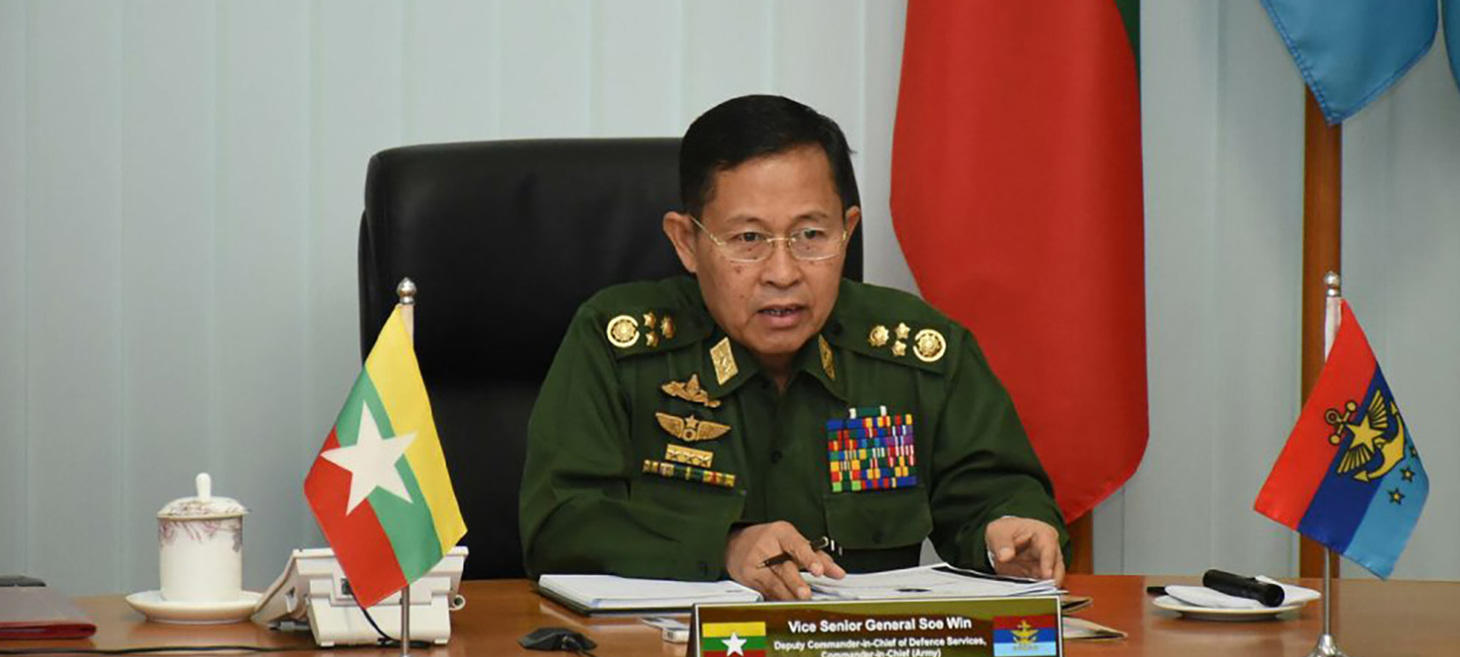
Chinese Ambassador, Military Attaché Hold Talks With Myanmar Junta No. 2
Chinese Ambassador Chen Hai and Military Attaché Major General Yang Yang held discussions with Myanmar's junta Deputy Chief Vice Senior General Soe Win in Naypyitaw. The talks focused on strengthening bilateral relations and cooperation between China and Myanmar, particularly in areas of mutual interest such as economic development and regional stability. This meeting underscores China's ongoing engagement with Myanmar's military regime, despite international criticism of the junta's human rights record and political repression. The discussions also reflect China's strategic interests in maintaining influence in Myanmar, a key partner in its Belt and Road Initiative. The meeting highlights the complex geopolitical dynamics in the region, with China balancing its economic and strategic interests against the backdrop of Myanmar's internal conflicts and international isolation.
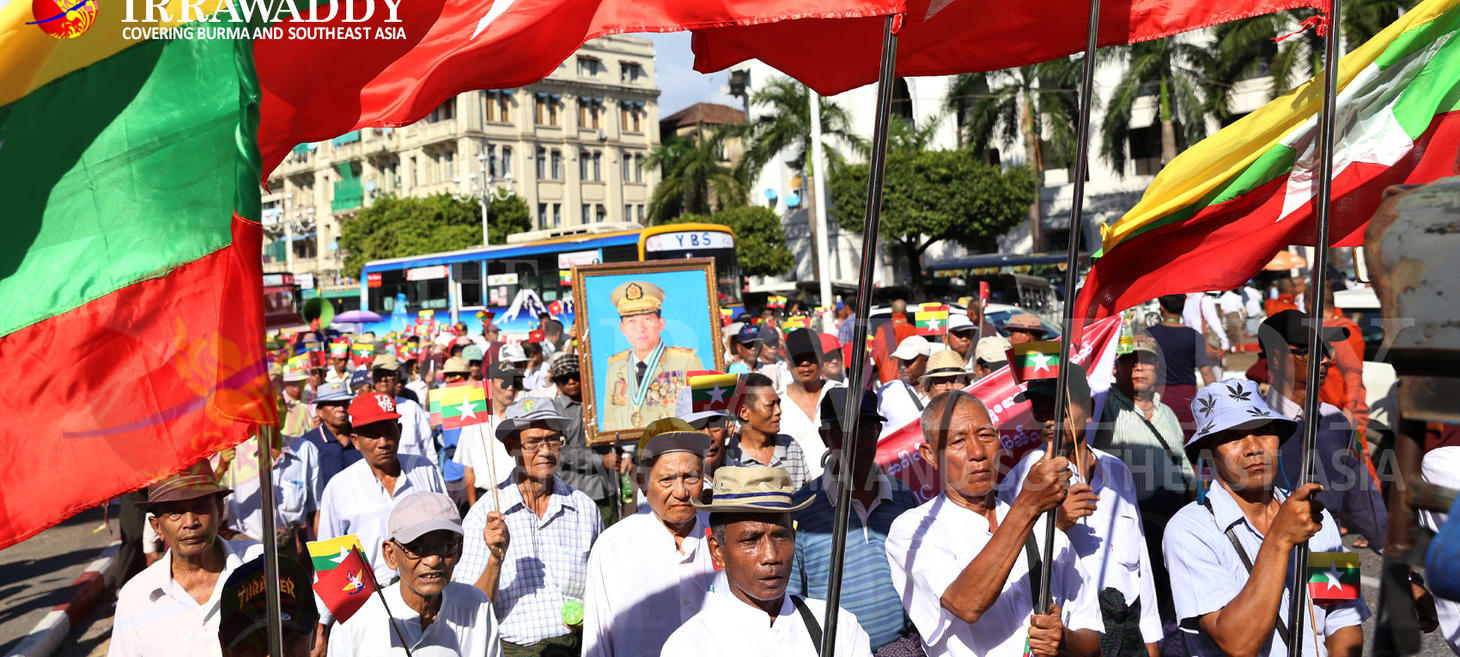
Why Myanmar’s Ultranationalists Are Unhappy With Junta Boss’s Trip to China
Myanmar's ultranationalists are expressing dissatisfaction with junta leader Min Aung Hlaing's recent visit to China, viewing it as a sign of excessive reliance on Beijing. These nationalists, who have historically been wary of Chinese influence, are concerned that the junta's growing ties with China could undermine Myanmar's sovereignty and national interests. The visit, which aimed to strengthen economic and military cooperation, has sparked fears that Myanmar could become overly dependent on China, particularly in light of the junta's international isolation following the 2021 coup. This sentiment reflects broader anxieties about China's expanding influence in Myanmar and the potential implications for the country's autonomy and future. The ultranationalists' discontent highlights the internal divisions within Myanmar regarding the junta's foreign policy and its alignment with China.
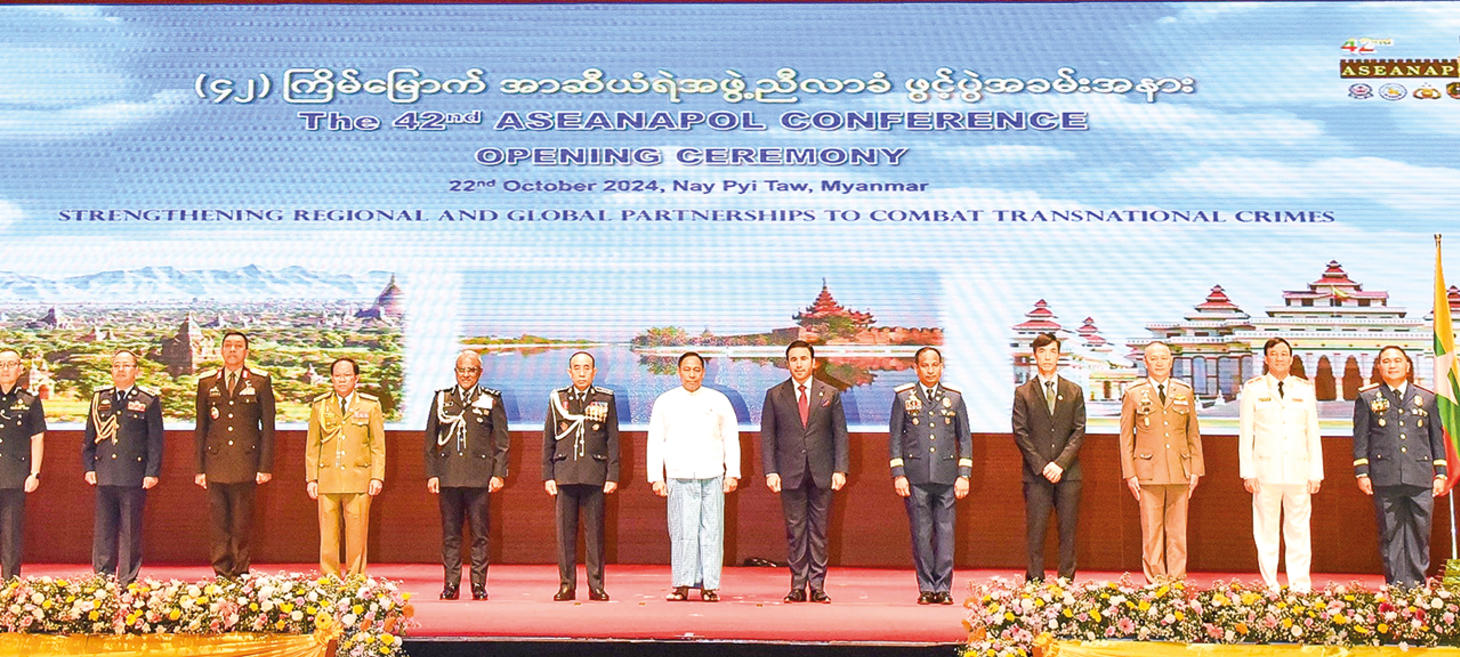
Australian delegation attended ASEAN police conference in Myanmar capital: junta-controlled media
An Australian delegation attended the ASEANAPOL conference in Naypyitaw, Myanmar, as reported by junta-controlled media. The conference, involving police chiefs from ASEAN member states and dialogue partners like Russia and Interpol, focused on enhancing law enforcement cooperation, including tackling cybercrime. Despite Australia's participation, the country does not officially recognize Myanmar's military regime as the legitimate government. This involvement has drawn attention due to the complex diplomatic stance Australia maintains, balancing engagement in regional security discussions while not endorsing the junta's rule. The presence of international delegations at such events highlights the ongoing diplomatic challenges and the need for dialogue on transnational issues, even amidst Myanmar's political turmoil.
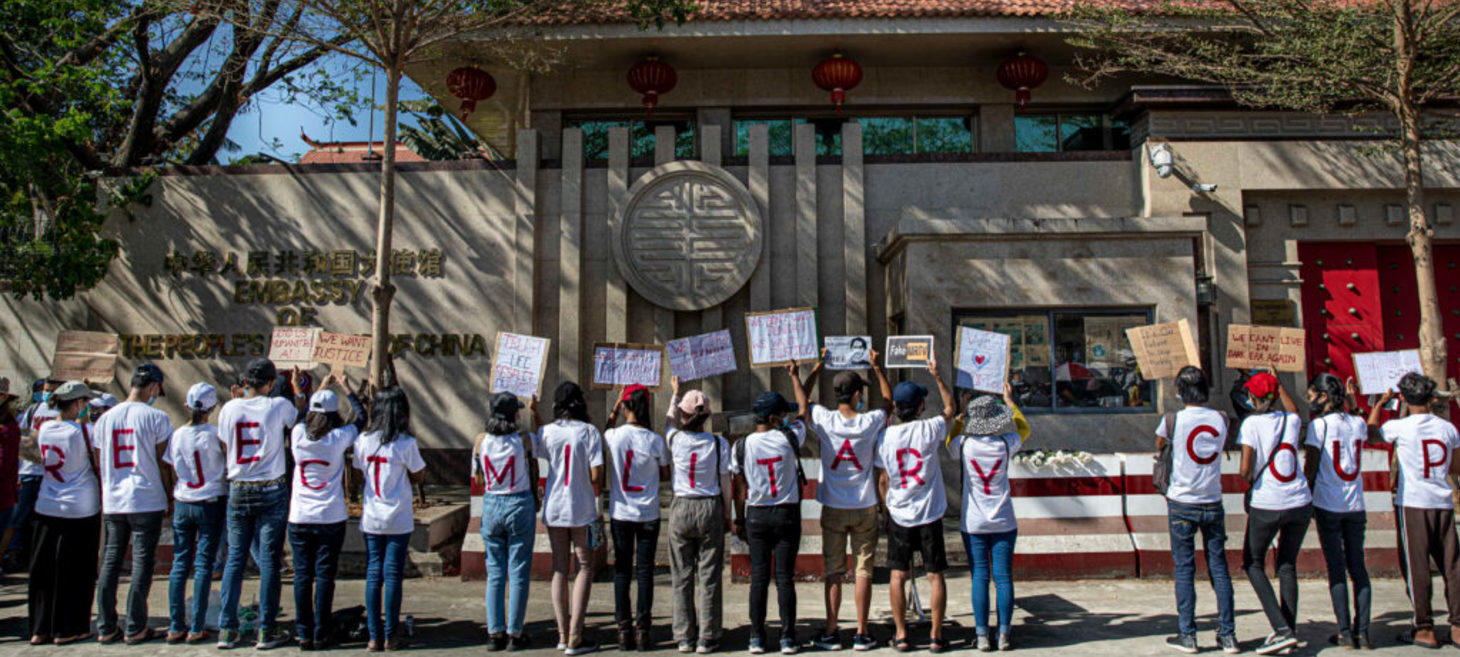
China’s Diplomatic Missions Have Troubled History in Myanmar
China's diplomatic missions in Myanmar have a complex and often troubled history, marked by fluctuating relations and mutual suspicions. Historically, China has maintained a pragmatic approach, balancing its strategic interests with Myanmar's internal dynamics. This relationship has been characterized by China's support for various ethnic armed groups along the border, which has sometimes strained ties with Myanmar's central government. Additionally, China's significant economic investments and infrastructure projects in Myanmar have been met with both cooperation and resistance, reflecting local concerns over sovereignty and economic dependency. Despite these challenges, China continues to play a crucial role in Myanmar's political and economic landscape, leveraging its influence to maintain stability and protect its interests in the region. The intricate nature of this bilateral relationship underscores the geopolitical complexities at play, as both nations navigate their intertwined futures amidst regional and global pressures.
General News
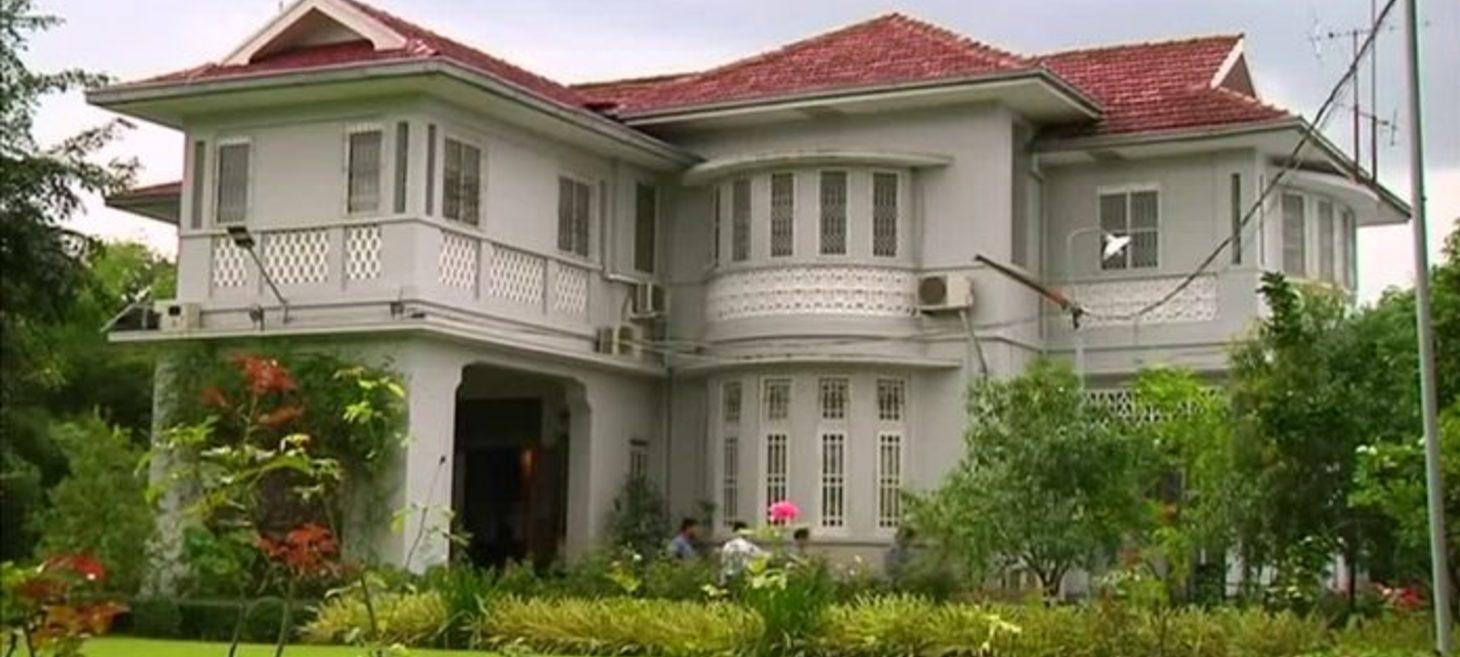
The legal dispute over Aung San Suu Kyi’s Yangon home continues
A court in military-controlled Myanmar has ordered the auction of Aung San Suu Kyi's family home in Yangon, where she spent 15 years under house arrest. The decision comes after a decades-long legal dispute between Suu Kyi and her estranged brother, Aung San Oo, over ownership of the property. The auction is scheduled for March 20 with a floor price of 315 billion Myanmar kyats (approximately $90 million). This historic colonial-style house on Inya Lake has significant symbolic importance as the site of Suu Kyi's long struggle against military rule. The auction follows a Supreme Court ruling last year granting Aung San Oo's special appeal to have the property sold. Suu Kyi's lawyers have challenged the auction, citing her inability to meet with them since December 2022. The National Unity Government has declared the property a cultural heritage site, prohibiting its sale or destruction.

Son-in-law of former Myanmar dictator arrested for criticising current regime
Dr. Nay Soe Maung, the son-in-law of former Myanmar dictator Than Shwe, has been arrested by the military regime for allegedly posting "destabilising" comments on social media. The junta's Ministry of Information announced the arrest, stating that he was charged in Mandalay’s Pyigyitagon Township, although specific charges were not detailed. The statement mentioned potential application of laws such as the Counterterrorism Law for comments that allegedly supported the National Unity Government and other anti-regime groups. Dr. Nay Soe Maung has been a vocal critic of the current regime since it seized power over three years ago. His arrest follows a recent Facebook post about a donation to flood victims and condolences for the death of an ousted Mandalay Region official, highlighting the regime's crackdown on dissent and freedom of expression.
Humanitarian
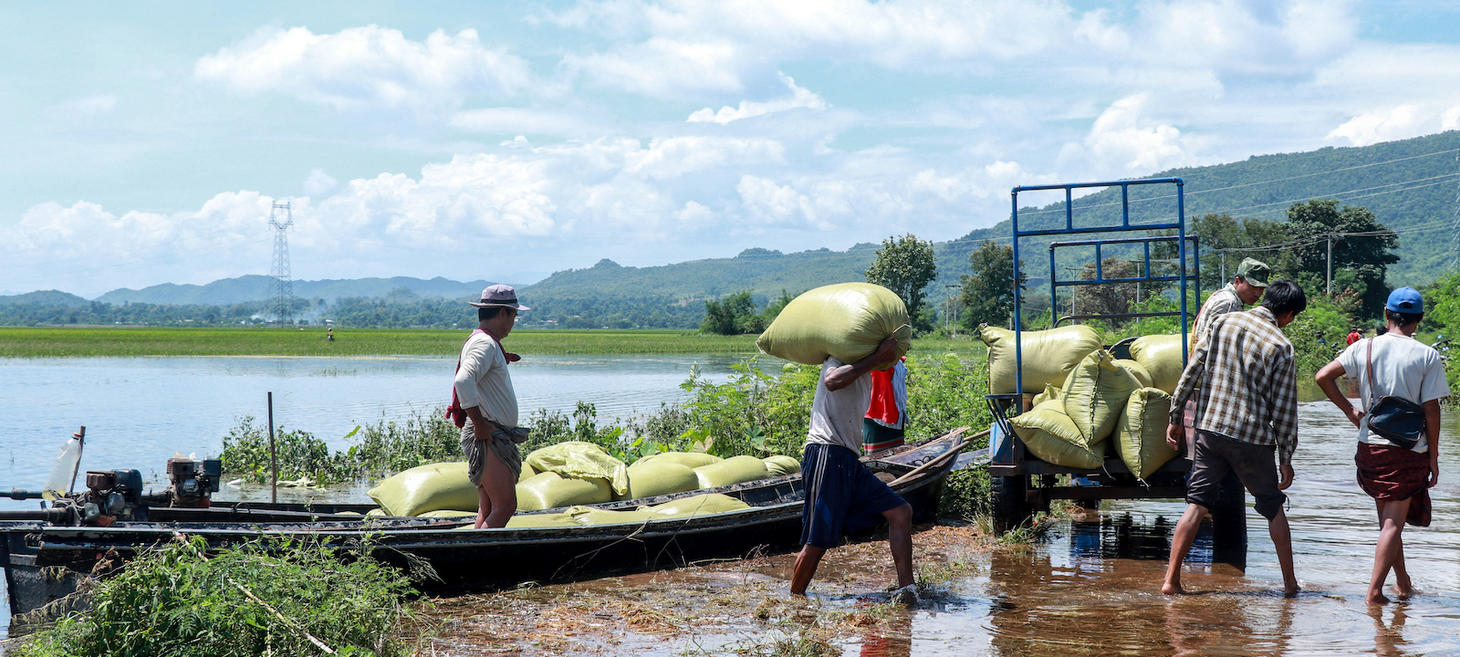
Double disaster: Flooding batters war-torn Kayah State
Kayah State in Myanmar is facing a dual crisis as severe flooding, exacerbated by Typhoon Yagi, compounds the ongoing conflict between the Myanmar military and the Karenni Nationalities Defence Force (KNDF). The flooding has resulted in significant casualties, including the tragic drowning of 18 KNDF medics during a training mission, and has displaced approximately 30,000 people. The military junta's blockades have hindered the delivery of emergency aid to affected areas, worsening the humanitarian situation. The floods have destroyed nearly 2,000 homes and over 10,800 acres of crops, raising concerns about food security and economic hardship for local farmers. Despite these challenges, local organizations and the Karenni Interim Executive Council are working to provide relief, using innovative methods like drones to deliver supplies. However, the need for aid remains critical, with many residents relying on donations for survival amidst rising commodity prices and scarcity of goods. The situation underscores the devastating impact of natural disasters compounded by ongoing conflict and political instability in Myanmar.
Sanctions

UK, EU and Canada impose new sanctions targeting Myanmar military - Reuters UK
Justice For Myanmar has welcomed the latest sanctions imposed by Canada, the EU, and the UK on Myanmar's military junta and its associated business networks. These sanctions target key sources of funding and resources for the junta, including the Shoon/Asia Sun network, which is involved in the import and distribution of aviation fuel crucial for the junta's airstrikes. The sanctions also extend to Swan Energy Company Limited, Myan-Oil Company Limited, Rich Ray Trading Company Limited, and other entities linked to the junta's military operations. Additionally, the EU has sanctioned the Karen Border Guard Force and its leaders for their involvement in illegal activities and human rights abuses. Justice For Myanmar emphasizes the need for more comprehensive and coordinated sanctions to effectively disrupt the junta's operations and urges countries like Singapore to block the junta's access to resources. The organization calls for further international action to support the people of Myanmar in their struggle against the military regime.
United Nations
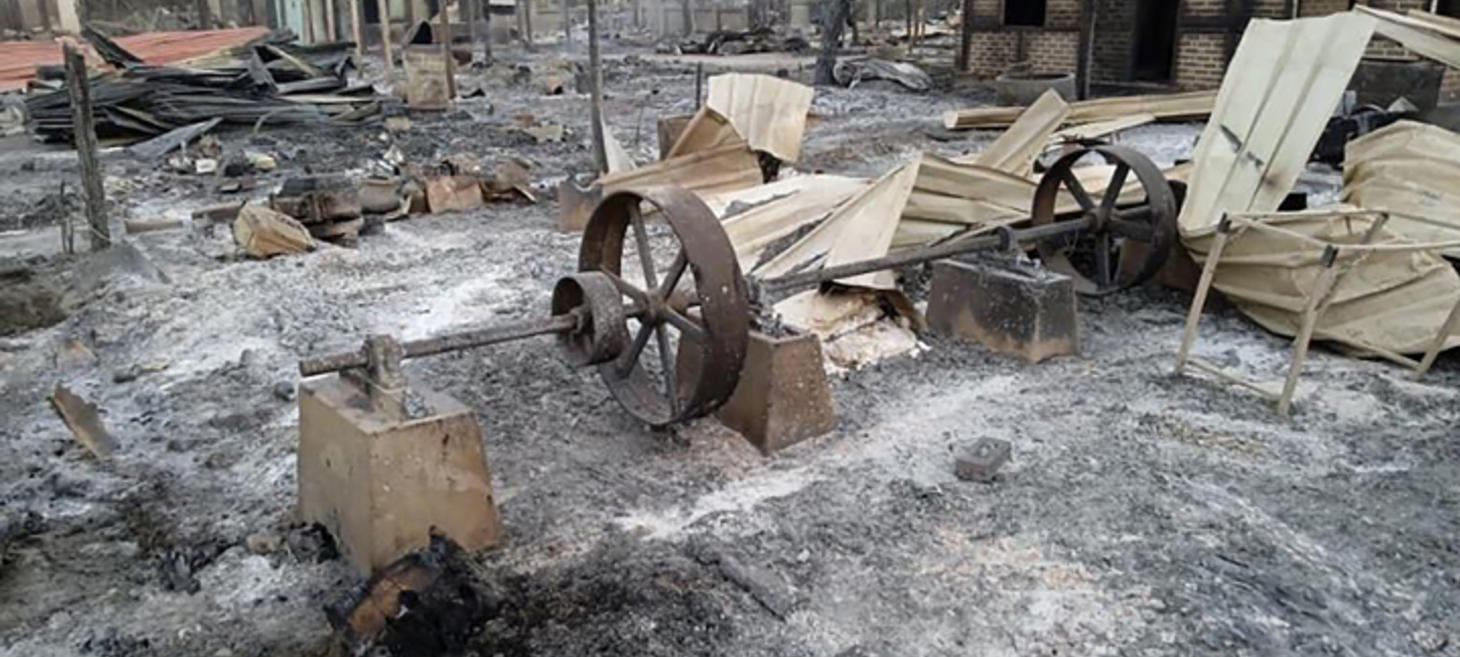
UN envoy warns Myanmar in crisis, with conflict escalating and criminal networks ‘out of control’
The UN special envoy for Myanmar, Julie Bishop, has warned that the country is in a severe crisis, with escalating conflict and rampant criminal networks. Since the military ousted the elected government in February 2021, violence has increased, leading to a humanitarian crisis with 3 million displaced and 18.6 million needing aid. Bishop emphasized the need to move beyond a zero-sum mentality and called for an end to violence to address the people's needs. She has engaged with various stakeholders, including Myanmar's military and opposition, ASEAN leaders, and neighboring countries, to leverage influence and promote a Myanmar-led reconciliation process. Despite a five-point ASEAN plan agreed upon in 2021, little progress has been made. Bishop highlighted the proliferation of organized crime, including arms production, human trafficking, and drug trafficking, as a major concern. She stressed the urgency of a democratic transition and warned of the regional and global implications of the ongoing crisis.